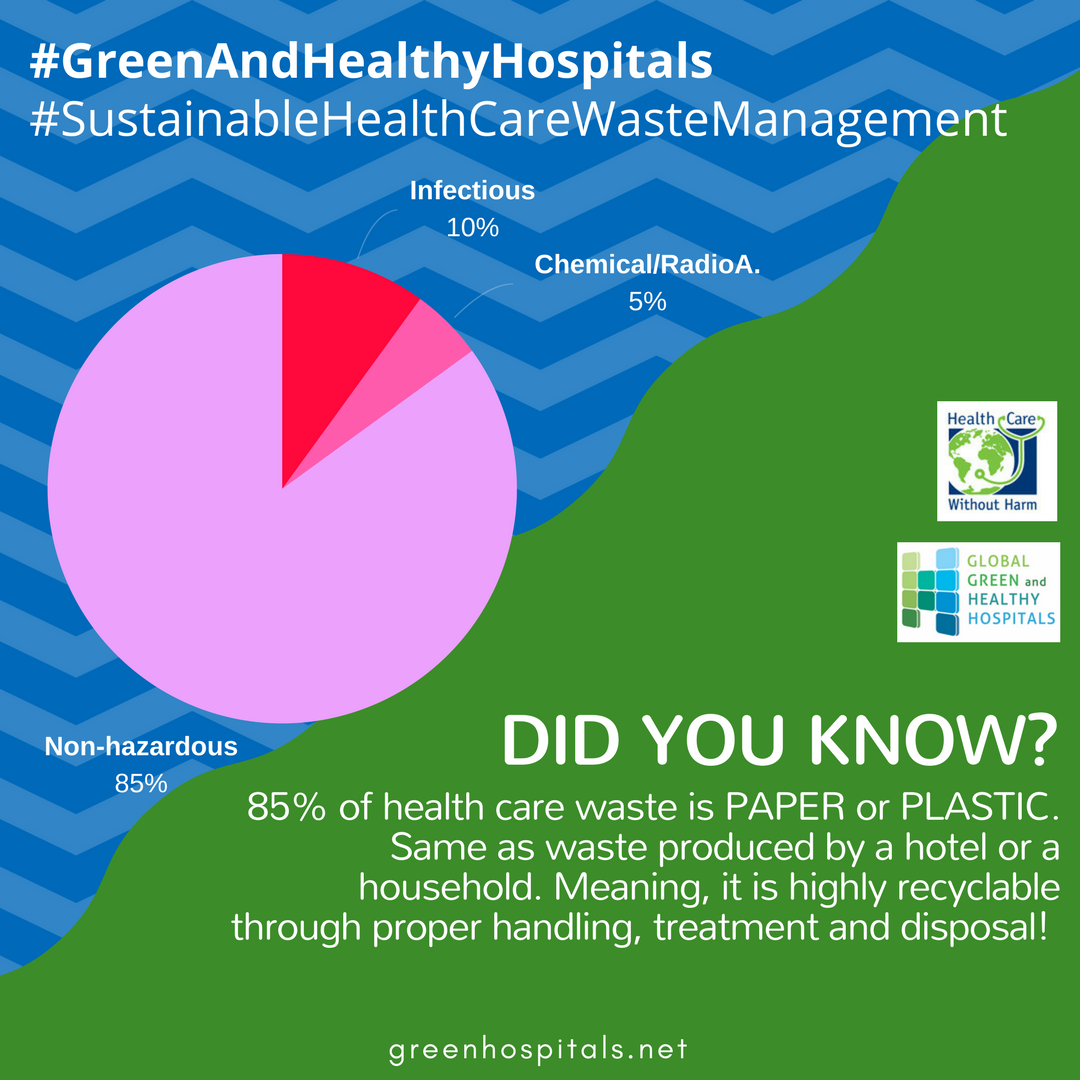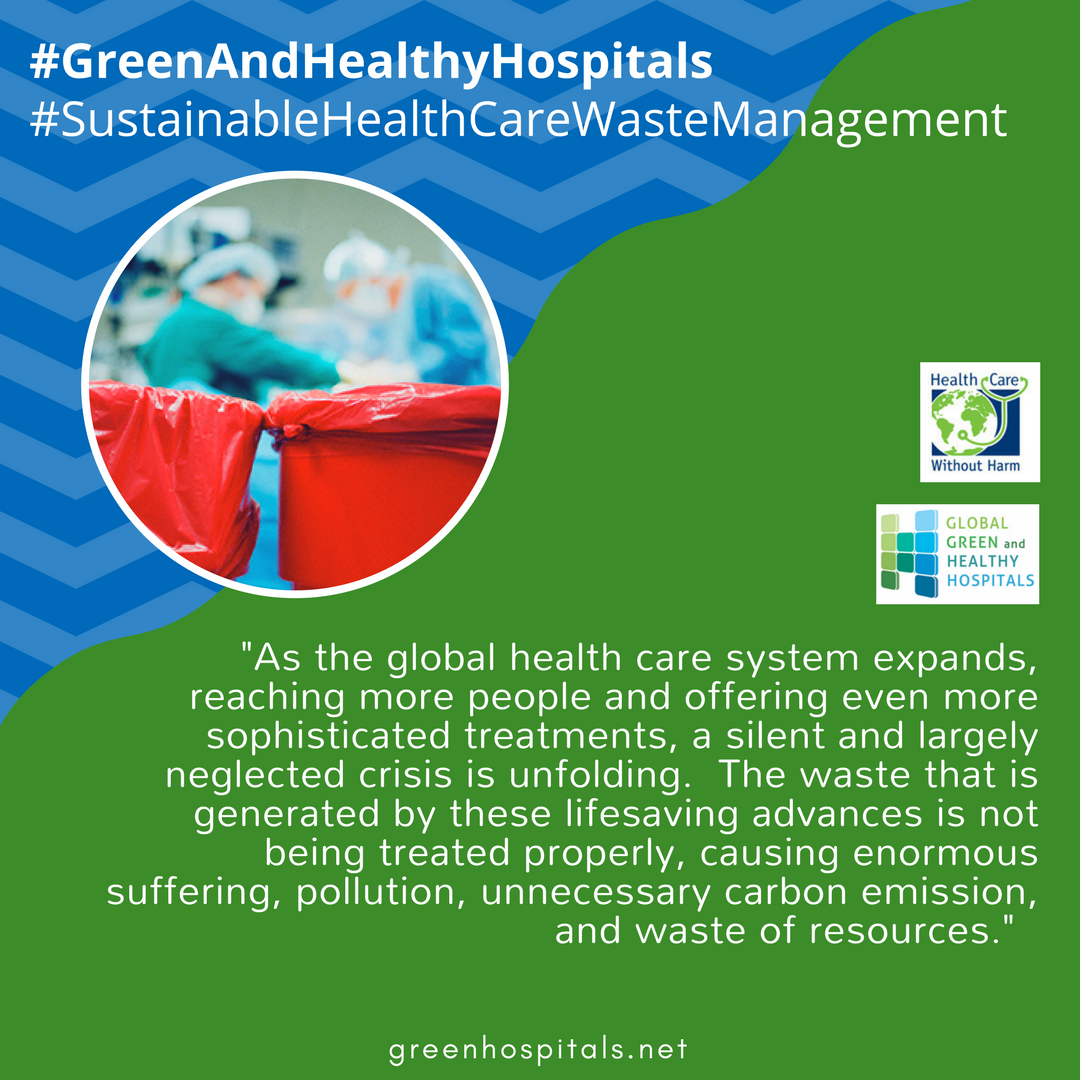Eighty-five percent of health care waste generated is categorized as general waste – paper and plastic – the same as household waste, according to the World Health Organization’s Health care Waste Fact Sheet.
“This waste stream can definitely be segregated properly, then either reused, repurposed, or recycled,” Faye Ferrer, Asia Coordinator of Global Green and Healthy Hospitals (GGHH), a Program of Health Care Without Harm (HCWH), said.
“This means that waste treatment technologies such as waste incineration facilities are not necessary if proper waste management is employed by hospitals. Incinerators as a means for disposal does not really work with hospitals; it discourages segregation and will actually make hospitals produce more waste. Waste incineration also releases dioxin and furans that are proven to cause cancer and weaken the immune system,” Ferrer added.
Health care is a resource-intensive sector producing special wastes that are infectious. Wastes that are categorized as infectious, such as used-needles, syringes, soiled dressings, blood, chemicals, medical devices, and even body parts require special treatment; but still, incineration is not the response to it.
According to the World Health Organization (WHO), poor management of health care waste exposes not only health workers and medical waste handlers but also the general public surrounding a health facility to an array of harmful health conditions such as infections and injuries.
Yet, health care waste management was noted as a neglected and growing public health problem, according to Ferrer during during the Medical Waste Handling Without Harm workshop, which was organized by Yayasan Pengembangan Biosains dan Bioteknologi (YPBB) and BioPharma. The workshop was held on the sidelines of the International Zero Waste Cities Conference 2018 in Bandung, Indonesia.
Organized by the Alliansi Zero Waste Indonesia and GAIA Asia Pacific, the International Zero Waste Cities Conference was hosted by the cities of Cimahi, Soreang, and Bandung. It served as a venue for city and community leaders from Zero Waste cities and municipalities in Indonesia, India, the Philippines, Malaysia, USA, and Europe to showcase Zero Waste practices such as source-separation of waste, community composting, and recovery of recyclable materials.###
----
Waste is one of the Agenda and Sustainability Goals of the Global Green and Healthy Hospitals. And the Asia network works with the #breakfreefromplastic movement and the GAIA Asia Pacific in terms of #WaysToZeroWaste that will #FirstDoNoHarm to the planet and the people.

